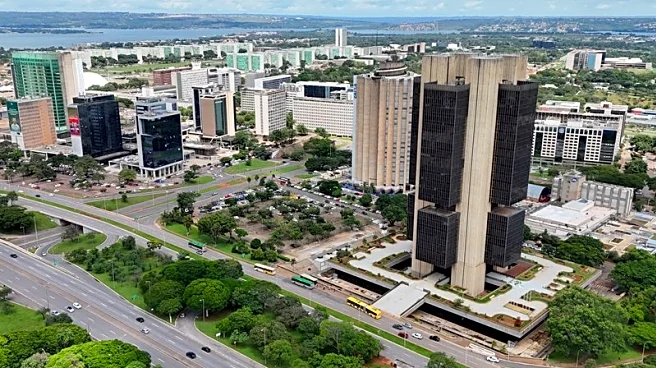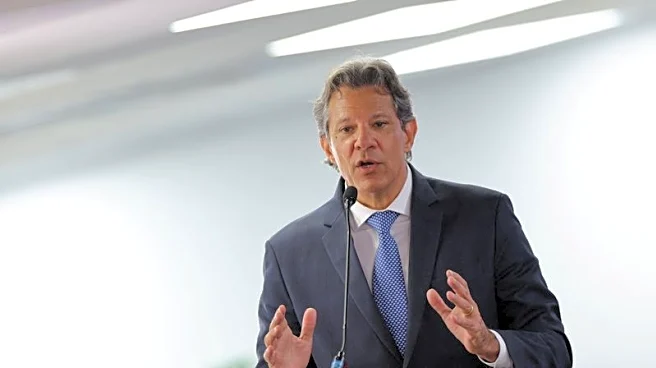What's Happening?
Chikungunya, a viral illness transmitted by Aedes mosquitoes, is seeing a rise in cases in India, particularly in cities like Mumbai. Health experts are cautioning the public against self-medication due to the potential for complications. The disease is characterized by symptoms such as sudden high fever, severe joint pain, headache, rash, and fatigue. While most individuals recover within a few weeks, joint pain can persist for months or even years. The World Health Organization advises against the use of nonsteroidal anti-inflammatory drugs (NSAIDs) if dengue fever is suspected, as they can increase the risk of bleeding. Currently, there is no specific antiviral treatment for Chikungunya, and management focuses on symptom relief through rest, hydration, and the use of acetaminophen for pain and fever.
Why It's Important?
The warning against self-medication is significant as it highlights the risks associated with improper treatment of viral fevers, which can lead to severe health complications. This advisory is crucial for public health, especially in regions experiencing overlapping symptoms of Chikungunya and dengue fever. The emphasis on consulting healthcare providers ensures accurate diagnosis and appropriate treatment, potentially reducing the burden on healthcare systems and preventing long-term health issues for patients. The rise in Chikungunya cases also underscores the need for effective mosquito control measures and public awareness campaigns to mitigate the spread of the virus.
What's Next?
As Chikungunya cases continue to rise, health authorities may increase public health campaigns to educate the population on the importance of seeking medical advice and avoiding self-medication. There may also be an emphasis on mosquito control efforts to prevent further spread of the virus. Healthcare providers are likely to remain vigilant in diagnosing and managing cases to prevent complications. The situation may prompt further research into effective treatments and preventive measures for Chikungunya and similar viral illnesses.
Beyond the Headlines
The situation with Chikungunya in India highlights broader issues related to public health infrastructure and the challenges of managing viral outbreaks in densely populated areas. It also raises questions about the accessibility of healthcare services and the role of public education in preventing disease spread. The reliance on self-medication in such contexts may reflect gaps in healthcare access and affordability, pointing to the need for systemic improvements.









